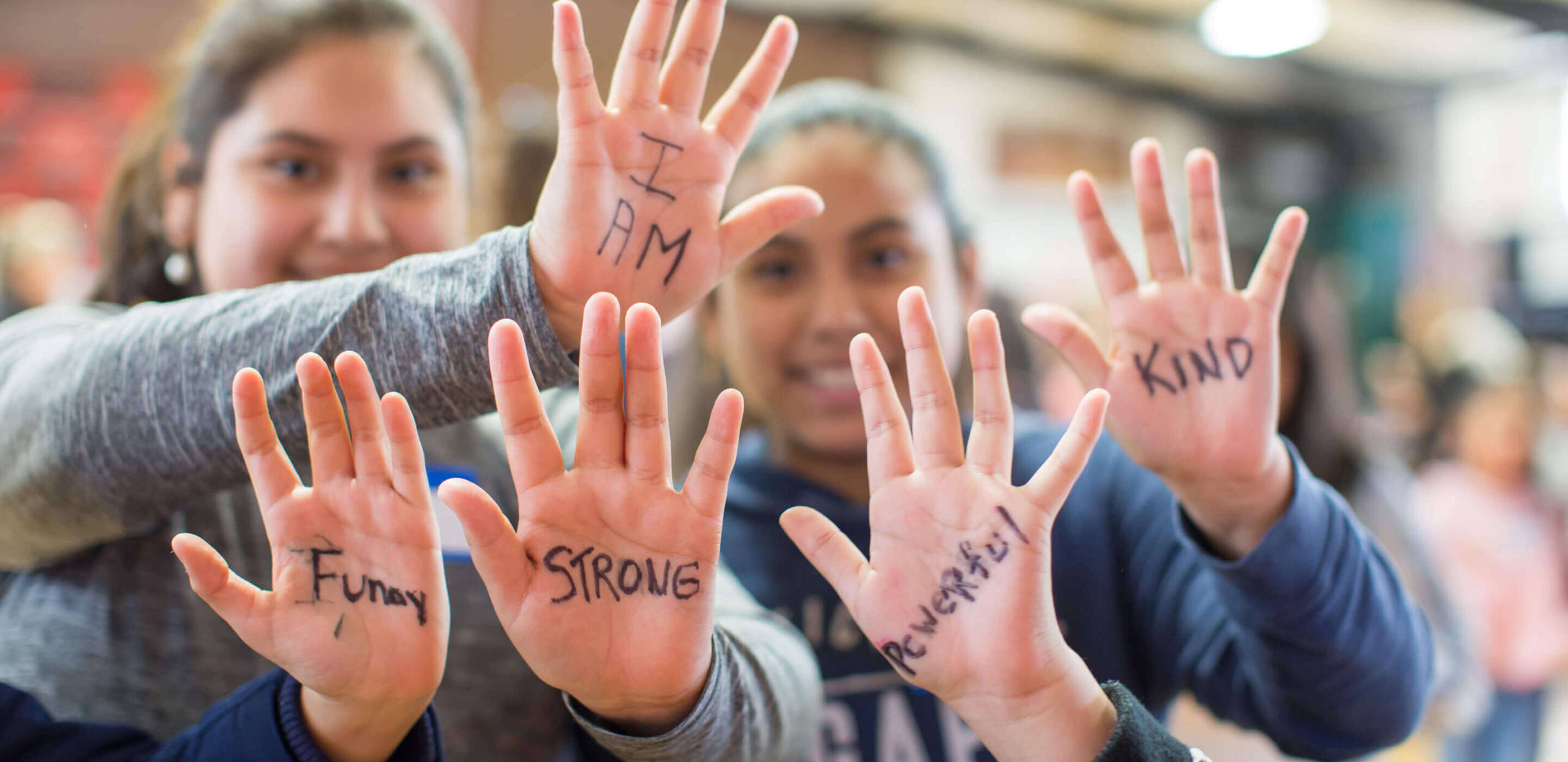i-tri is an inclusive, immersive, community-based program that fosters self-respect, personal empowerment, self-confidence, positive body image and healthy lifestyle choices for adolescent girls. They train them to complete a youth-distance triathlon as a metaphor for life’s journey, giving them the opportunity to set seemingly impossible goals and helping them gain the tools to achieve those goals. Stop & Shop has supported this organization through the Community Bag Program.
Tell us about i-tri.
i-tri is an empowerment program for middle school girls through the sport of triathlon. We’re a goal-based organization, and the goal for our girls is to complete a youth distance triathlon. Along their journey to the FINISH LINE, our participants gain physical, mental and emotional skills, build resilience, healthy habits and a growth mindset that lasts a lifetime!
i-tri was founded in 2010 at Springs School in East Hampton, on the East End of Long Island. After a lifetime of never being an athlete, I did a triathlon in my 30s, and it just changed my whole being. I had always dealt with very low self-esteem and never thought I could do something as big as that. Through the process of setting that goal and working towards it, everything in my life changed, including how I viewed myself and the world around me. Everything changed for the better.
Years later, my daughter was about to go into middle school when I was still doing triathlons and getting more adults involved in the sport. At the time, I reflected on what a hard time in life middle school can be. It occurred to me that if I had learned everything about myself that I did in my 30s earlier in life, I would have saved myself a lot of trouble!
And so that’s where the idea came from. What if we took a group of girls who didn’t necessarily consider themselves athletes or who were dealing with issues at home or struggling in all the ways we do during adolescence and gave them all of the tools, the training, the support and the LOVE, necessary to complete a big goal- like doing a triathlon? So, I went to my daughter’s small public school down the street from me. I had been a teacher before having her and volunteered a lot at the school, so they knew who I was. But still, to this day, I laugh, saying, “I can’t believe they ever let me do this!” So, I pitched this idea to them, and they gave me so much support. Sharon McCobb, who today is our Athletic Director had been training youth to do a triathlon, was on board from day one- creating not only the physical training component of the program- but creating the first-ever youth distance triathlon in our area.
That first year, we started with ten girls. The next group was 24 girls, and today, we are in 13 schools on Long Island, from Montauk to Mastic, and more than a thousand girls have crossed the finish line!
What services do you provide to the community?
Number one, first and foremost, is that the program itself is entirely free to any girl who finds their way to us. We partner with the local schools, and they help us by giving us space to operate after school. They also help us in the recruitment phase so that we can make sure that the program is available to girls who can benefit the most. We meet twice a week, once after school for two hours and then on Saturdays.
The first hour is our empowerment curriculum, which is very aligned with New York State standards and social-emotional learning. Our program is very mind, body and spirit. As we know, we’re in the midst of a mental health crisis, especially with adolescents. So that is where the true focus of our program is. As much as it is an athletic goal, the real goal is to have these kids realize how important it is to love and appreciate themselves. i-tri is about feeling good and feeling good every step of the way. And yes, you’ll make it to the finish line, but for some of these kids, it’s the first time that anybody’s ever believed in them in a way that matters.
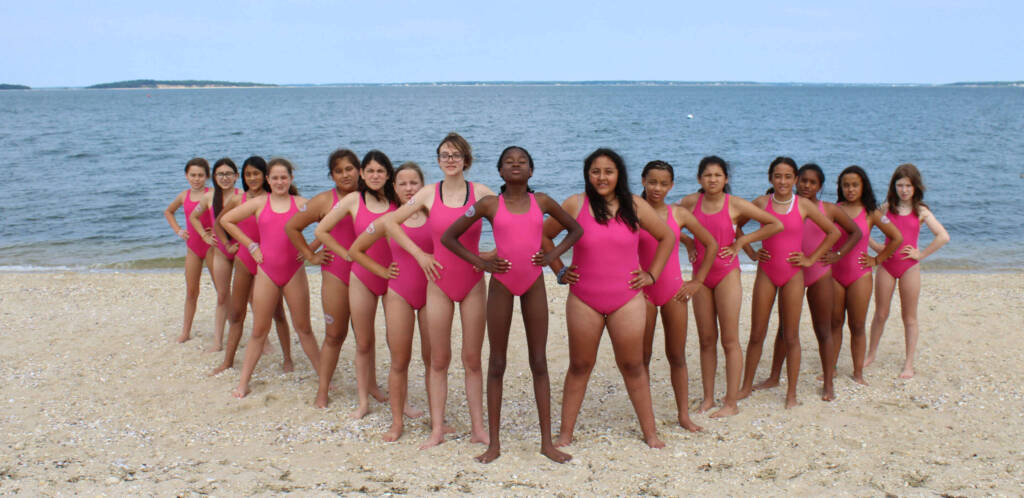
As much as it is an athletic goal, the real goal is to have these kids realize how important it is to love and appreciate themselves.
And that’s the job of our incredible program staff who identify that special spark in each one of these girls and really foster that and have a connection. We have great athletic coaches who will get them to the finish line, but it’s really what happens in those empowerment sessions that is so important.
If you read any of the studies right now, especially coming out of Covid, it’s a very different world than we grew up in. Exposure to social media is pervasive and not contained. Trying to keep kids off social media is very hard to do. We give the girls time to connect in person because that’s what’s missing. They’re not communicating with each other away from screens. We offer these big blocks of time to be in “community” with peers and trusted adults without phones- you can’t ride a bike, swim or run and still be on your phone.
All of our staff and organization have training in something called trauma-informed care and coaching. Our methods are very empathetic and have been making a huge difference, especially with kids dealing with anxiety and depression, which we see increasingly every year.
We also have an integrated STEM curriculum so that while we’re doing the program, we are also introducing high-level STEM (Science, Technology, Engineering & Math) concepts because we know that girls, especially when they enter high school, a lot of times choose to drop out of sports and higher-level classes.
For example, we have girls swim a lap in the pool; then we ask them to put on a hoodie and swim a lap. Guess what? You’ve just felt dragged. When they get to high school and take physics, they already understand that concept through experiential learning.
We find that our girls go into high school after completing a triathlon, thinking, “If I can do that, I can do anything!” So, they are continuing with sports and taking higher-level math and science classes. Many of our girls have gone on to get medical/nursing degrees and work in tech firms and other STEM-related fields.
What sets you apart from other nonprofits in your community?
We’re very fortunate to be on the East End of Long Island. This community has such a tradition of philanthropy, but there’s such a dichotomy in income. We have great affluence here, but we also have people experiencing homelessness, a large immigrant population, and everything in between. All the different socioeconomic strata are represented here.
We do work together with a lot of the nonprofits serving youth in our community, but the fact that we don’t charge anything is a key differentiator. Also, we stay closely connected with our alumnae. There are always opportunities that come up that we can pass on to our alums.
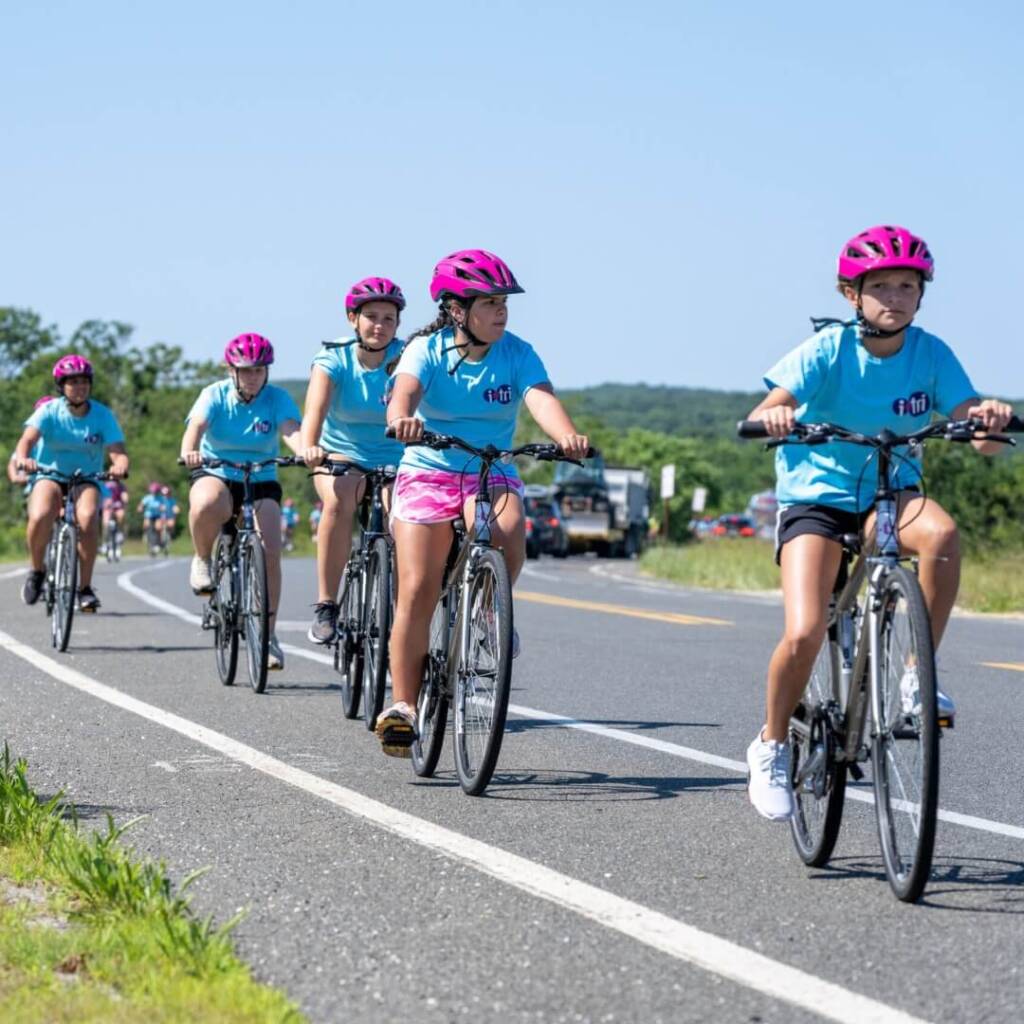
Tell us a story that illustrates the good work of your organization.
I’ll share one that’s stayed with us all these years. As I said, we are in schools from Montauk to Mastic, and the income level is very low in Mastic. Many of our participants from that district are housing insecure, and transportation is always an issue. In our first year in that district, we had a very large group, and one of the girls, Stacey, was incredibly tough. She would shut down or talk back. She wouldn’t want to do whatever we were doing. She was just very difficult.
We got to about midway through the season and did this lesson called Love Letters. In this lesson, the girls are asked to write a love letter to themselves as a way to improve their self-esteem. So, everyone was writing; she started and then stopped. I asked her, “What’s going on?” She said that she couldn’t do it. I asked if I could take a look at what she had written, and I said, “That’s a really good start. Do you mind if I write?” She agreed. So, I wrote, “I am so proud of who you are. I know it hasn’t been easy. I know that everyone in your family depends on you. Your siblings depend on you, and it doesn’t leave you a lot of time to be yourself. But you really do shine; your friends look up to you, and you really are such a leader.” Then, I said, “Why don’t you take a look at this and add some stuff?” Then I walked away, but I saw her reading it; she looked at me and then read it again. And then, she started writing and writing and writing. It was like a floodgate had opened. But I don’t see what she wrote; it goes in her journal.
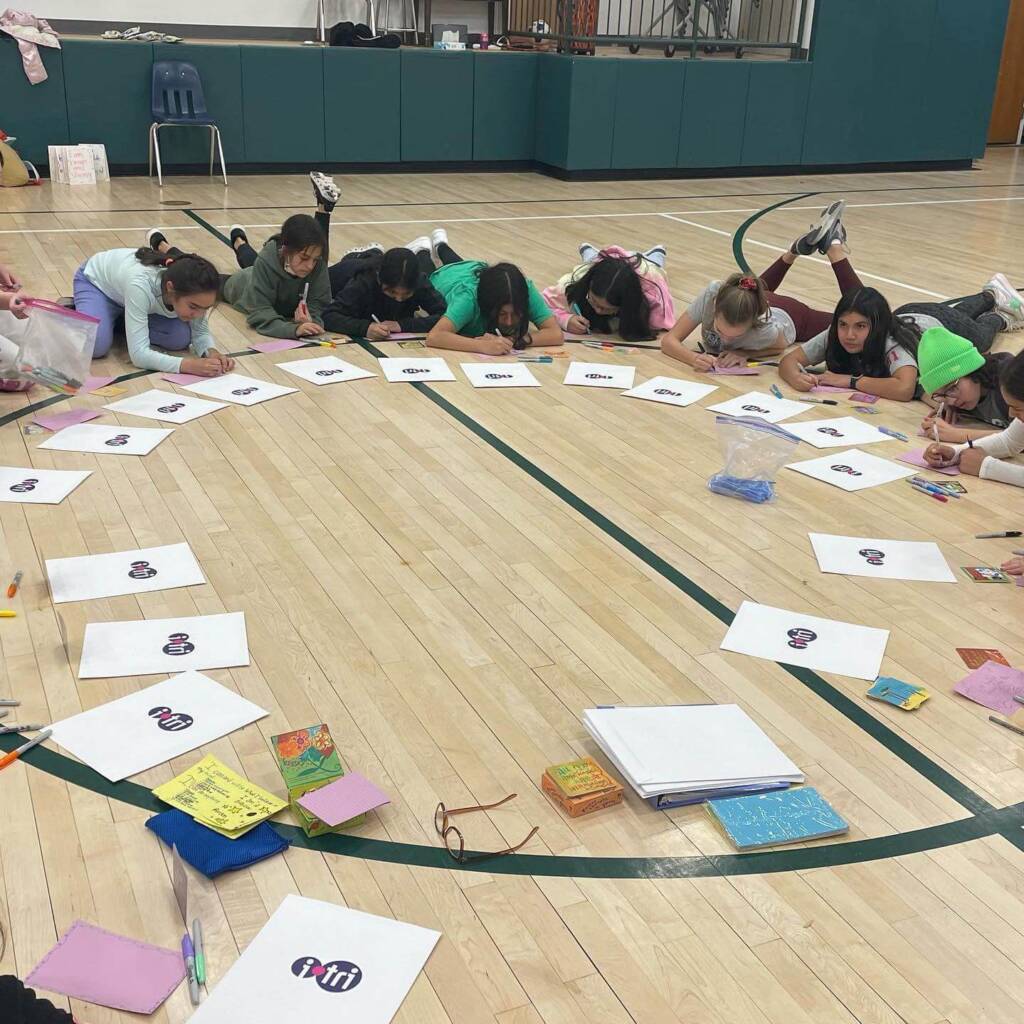
That afternoon, we’re doing the fitness part of the program. First, we have to run. Guess who’s first in the running? She is now. Then we go into the pool. Who is first in the water? She is. Who’s the first to do the lesson and then help the girl behind her? She is. Everything changed after that moment. Somebody was able to see her for who she was, recognize her and allow her to soften a little bit. This kid was experiencing homelessness, living in a motel room with her single mother and 4 siblings, cooking dinner in a microwave each night and had gone through such turmoil.
So, fast forward. The next year we went to the school for a meeting, and the principal asked us, “What did you do with Stacey?” We just looked at each other and thought, “Oh no…what happened?” She said, “I don’t know what you guys did, but last year before i-tri, she was in my office at least once a week for discipline. Do you know how many times she’s been in my office this year? Zero times. Do you know who we’re bringing to the elementary school to talk to the younger kids about coming up to the middle school? Stacey.” The transformation of this girl was just stunning.
What is your most outstanding achievement or contribution to the community?
What we can do for these kids and their families never stopped during COVID. We kept them engaged even though we had to go virtual, and we know firsthand that we saved some lives. There were some kids in critical mental health states that we were able to get to services.
You talk to the principals at the high school level, and they’ll tell you that, in so many instances, the student leaders at the high school are i-tri alums. They come through our program and are just better humans on the other side because they realize they’re worthy of the effort and they’re loved and lovable. And that makes all the difference, and it spreads through the community.
They come through our program and are just better humans on the other side because they realize they’re worthy of the effort and they’re loved and lovable.
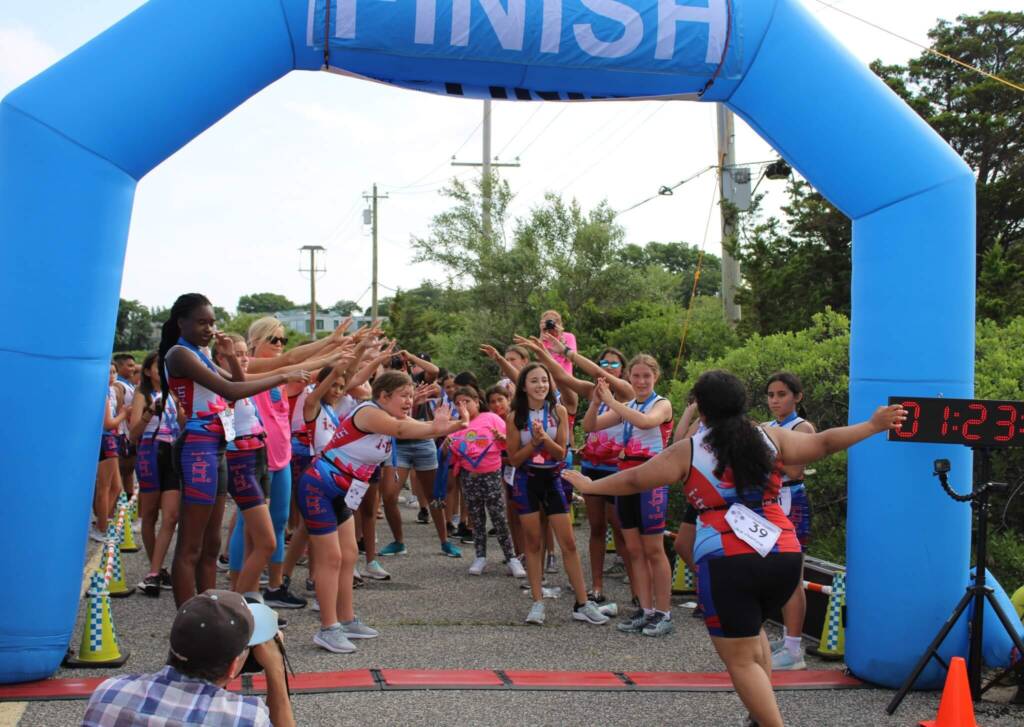
What do you want people to know about i-tri?
Being a nonprofit offering free services doesn’t mean we don’t have expenses. To keep the quality of our programs going, it’s so important that we have strategic partnerships like we do with Stop & Shop, for which we’re so grateful. But it is important to spread the word and get people to know about us and hopefully donate their time or their dollars to support us.
How are you using the funds raised from the Stop & Shop Community Bag Program?
They’re used directly for program supplies or program equipment.
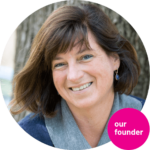
Published July 10, 2023.
